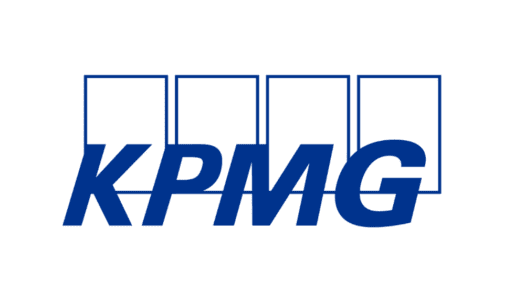What are the current trends/behaviours in the HNW property investment environment?
There are principally two different groups of High Net Worth Individuals to consider in the London property market:
- the ‘end user’ – these are buyers who are acquiring property to live in (this could be as a primary or secondary residence); and
- the buy-to-let investors/developers. These two groups of buyers will have different motivations and can behave quite differently.

Since the pandemic began in 2020, the media has been referring to the ‘race for space’ to describe this competitive rush to get space both inside and out. ‘Large gardens’, ‘off street parking’, ‘one or two studies’ and ‘close to parks/commons’ have been regular entries on the search criteria list. A misconception for some is that this is limited to the home counties which have seen c. 18% growth post pandemic. Whereas, in fact, the housing market in areas like the green leafy parts of Notting Hill, Kensington, Holland Park as well as North, South West and West London have performed phenomenally well and, in some postcodes, have even seen double digit growth.
Whilst the flat market hasn’t typically fared as well in the ‘race for space’, those flats with good outside space (terrace or garden) have shown more resilience and, in some cases, bucked the trend entirely.
Despite a quiet Q4 2022, in response to the mini budget and uncertainty in the mortgage markets, the market remains very competitive for these ‘best-in-class’ assets with some strong pricing being achieved and indeed a new record being broken in May for a large communal garden house in Holland Park.

Historically, unmodernised properties offering buyers the opportunity to create their own style and space, whilst also saving on stamp duty, has been a popular choice. Over the past couple of years, with building costs having risen c. 30% coupled with uncertainty on timings for works due to supply issues and a depleted workforce – although these are starting to stabilise – we are beginning to see a growing preference for ‘turnkey’ properties. It’s worth noting turnkey properties are in limited supply and often demand a premium, even where the bones and precise location aren’t best-in-class.
However, where a good buying agent is involved, clients are often more comfortable in tackling a project. We identify value in bringing the right professionals early in the buying process to provide detailed numbers and timescales from a few trusted teams, which can then all be modelled into any offer submitted. Last year, c. 70% of properties we purchased for our clients were unmodernised.

The strength of foreign currencies, such as the US and Hong Kong dollar, coupled with the easing of travel restrictions, has certainly brought back foreign investors. With it has come a gentle resurgence of the property markets in the likes of Belgravia, Knightsbridge and Mayfair, and, in turn, an awakening of the flat market – although flats in these areas are thought to still be some 18% below their peak in June 2015. When you take this into account alongside the currency, effective discounts are thought to be in the range of 35% to 40% in the aforementioned areas.

International buyers have for a long time been a major contender in the buy-to-let market. Naturally, with their return to the London property market, we have seen a slight increase in buy-to-let activity. However, with cheap debt no longer available and tax changes making it unattractive to be a landlord, many of these investors are focused on capital appreciation over the long term rather than income or are indeed opting to purchase in cash.
The lettings market has similarly struggled with a lack of supply over the last two years, which has inevitably driven rents up – average rental growth for Prime London since the pandemic is now c. 12.5% although in key areas this is as high as c. 25%. Rents for Prime London are forecast to grow 13.5% from 2023-2027. Contrary to what was seen in 2022, where properties at the top end of the market were outperforming, 2023 has shown a rising demand for smaller properties at the lower end of the market. The shortage of stock has been driven by; owners pulling stock from the lettings market to take advantage of a strong sales market; extensive flooding in large parts of Prime Central London; various changes to the tax system and rising interest rates eroding net returns making it less attractive for landlords; as well as other wider UK policy changes.
How has the value of sterling, increasing inflation and rising interest rates affected the property market in 2023?
With the aforementioned effective discounts for international buyers of around 35%-40% and the outlook for London price growth in 2023 limited, it is likely that the London market will continue to appeal to foreign investment and help prop up pricing.
The mortgage market is looking in much better shape this year than what was witnessed in Q4 2022, when rates rose above 6.0%. With mortgage products now available at c. 3.85% (the average mortgage rate is c. 4.25%) for a 5-year fixed there is stronger buyer confidence. Particularly for Prime Central London, where only 33% of buyers obtain finance. In markets like South West London, where almost two-thirds of buyers will borrow, many have already taken stock and revised budgets down, opted for tracker mortgages or borrowed from family, and are continuing on with their search.
With the Bank of England alluding to the fact that the UK “has turned a corner” and subsequently predicting sharp falls in inflation, we anticipate that this will encourage buyers back to the market.
What guidance would you give to any prospective investor when it comes to investing in UK Real Estate?
When you are in unchartered territory get yourself an expert. Purchasing a property is a large financial investment so being properly represented and having the right advice is crucial.
It is still a competitive market for ‘best-in-class’ assets and often buyers are pushed into offering well above the guide to secure it, where this is not necessarily the case. Vendors will have several pressure points which can, and need to be, identified. A buying agent will be well versed in how to ascertain this information and use it to their client’s advantage, positioning their client as the most steady and committed amongst the competition. We often exchange in 5-10 working days with, on occasion, even tighter timeframes of 24-48 hours, to safely secure properties.
Having the right team of professionals around you is critical. Ensure you are onboarded with a reputable London solicitor at the outset – a solicitor can make or break a purchase – and should you be obtaining financing, have your mortgage approved in principle prior to offering. When choosing your surveyor, look for someone who has strong experience in your local area. We work with surveyors who call us immediately post inspection to discuss any salient points so we can immediately carry out any further due diligence to get ourselves and the client comfortable, which enables us to keep to tight exchange timeframes. Extensive after care is also a huge part of what we offer, to ensure every element of the property is as expected and our clients are truly delighted with their purchase.
Is London still a key market for property investors and, if so, why?
Despite recent political and economic instability, London continues to be a huge draw for domestic and foreign investment. London’s infrastructure whether it be education, medical, transport; its political system, albeit not without its faults; or its strong rule of law and governance will continue to ensure London is viewed as a safe haven. Lastly, when the transactional costs (despite the increases in stamp duty) are compared to other major global cities, London remains competitive and highly attractive.

Hannah Aykroyd Founder of Aykroyd & Co
Hannah studied Law before moving into property, initially in sales before happily switching to the buying side over 10 years ago. Hannah founded Aykroyd & Co in 2018, a fully independent property advisory firm covering prime London, focussed solely on protecting the buyer’s interests. They are a strong team who leverage their vast network to source the very best properties for their clients, with nearly 80% acquired being discreetly off-market. With their extensive market knowledge and the latest data, they advise clients on pricing, breaking down target areas often street by street so that once they have sourced ‘the one’ their clients are empowered to make the right decision. They negotiate firmly, bringing in their trusted team of professionals and carefully oversee every element to ensure they exchange and complete swiftly and seamlessly. All of this is done with the utmost discretion, whilst hopefully making the process enjoyable for their clients.





